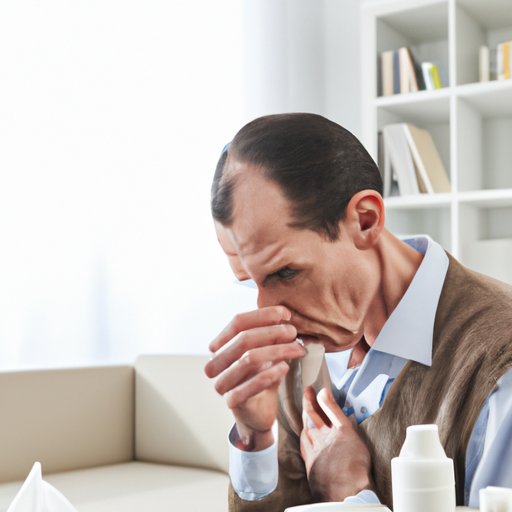
I. Introduction
Anxiety is a natural human emotion that we all experience from time to time. However, for some people, anxiety can be overwhelming and impact their daily lives in significant ways. While anxiety is not usually life-threatening, there have been cases where it has contributed to mortality. In this article, we’ll explore the connection between anxiety and mortality, its symptoms and effects, and ways to manage and prevent anxiety from reaching dangerous levels.
II. Personal Stories
Everyone experiences anxiety differently, but for some people, it can be terrifying and life-changing. One personal story of extreme anxiety comes from a woman who had a panic attack while driving on a busy highway. She felt like she was suffocating and her heart was about to burst out of her chest. Fortunately, she was able to pull over and call a friend who helped her calm down. However, the experience left her feeling traumatized and avoiding driving in any kind of traffic for months afterward.
III. Statistics and Research
The link between anxiety and mortality is not well-understood, but recent studies have found evidence that anxiety and related disorders may be associated with an increased risk of death. One study published in the British Medical Journal found that people with anxiety disorders were more likely to die from a range of diseases than those without anxiety disorders. The researchers suggest that this may be due to the impact of chronic stress on the body’s systems, including the cardiovascular and immune systems. Other research has found that anxiety and depression may contribute to higher rates of suicide and accidental overdose.
IV. Symptoms of Extreme Anxiety
When anxiety becomes severe, it can cause a range of physical symptoms that can be frightening and even life-threatening. These symptoms can include shortness of breath, chest pain, heart palpitations, dizziness, and nausea. In addition to these physical symptoms, chronic anxiety can also have negative effects on the body’s organs and systems, including the gastrointestinal system, immune system, and cardiovascular system.
V. Treatment Options
If you’re experiencing anxiety that is impacting your life or causing physical symptoms, it’s essential to seek professional help. Treatment options for anxiety can include medication, therapy, and lifestyle changes. Anxiety medication can help reduce symptoms and make it easier to cope with daily life. Therapy can help you learn coping techniques and address any underlying issues that may be contributing to your anxiety. Lifestyle changes, such as exercise, a healthy diet, and stress management techniques, can also help improve symptoms and reduce the risk of anxiety-related mortality.
VI. Changes in Behavior
When someone is experiencing extreme anxiety, their behavior may change in significant ways. They may avoid certain situations or activities, isolate themselves from others, and experience changes in appetite or sleep patterns. These changes in behavior can exacerbate the condition and lead to serious consequences. It’s important to recognize when anxiety is impacting your life and seek help before it reaches dangerous levels.
VII. Prevention Tips
Preventing anxiety from reaching a potentially life-threatening level is possible with some lifestyle changes. Eating a healthy diet, getting regular exercise, and practicing stress management techniques such as yoga or meditation can help reduce anxiety symptoms and the risk of mortality. It’s also important to seek professional help if you’re struggling with anxiety that is impacting your daily life.
VIII. Conclusion
Anxiety is a common human emotion that can become overwhelming and potentially life-threatening if left unmanaged. While the link between anxiety and mortality is not well-understood, recent research suggests that anxiety and related disorders may be associated with an increased risk of death. However, there are many ways to manage anxiety and reduce the risk of mortality, including medication, therapy, lifestyle changes, and stress management techniques. If you’re struggling with anxiety, don’t hesitate to seek professional help.




